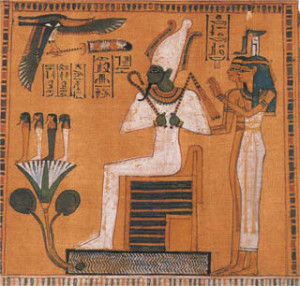Tomorrow on November 8th New Zealand voters will decide who will govern this country for the next three years. In the last few blog entries I’ve given a fairly good idea of where I stand and the kind of government I would like to emerge from that election. Today I will not say anything at all about that. What I say today will hopefully have relevance well beyond the New Zealand election. It is as relevant for us as it is for the recent American election and Canadian election (whenever that is) as well as any other country’s election.
I know what I want in a government, but I also know that political salvation is not merely wishful thinking, it is idolatry.
Although I have my disagreements with the late Cornelius Van Til as I have mentioned in a previous podcast episode, when he was right, he was right (and while I’m at it I may as well add that A = A). In a slightly different but related context (namely that of philosophical ethics), Van Til made this pronouncement:
“There is no alternative but that of theonomy and autonomy”
(Christian Theistic Ethics).
In this context, “theonomy” means deriving our standard of right and wrong from God, and “autonomy” means deriving our standard of right and wrong from ourselves, either individually or collectively.
The election has the potential to do some good for our economy, for our levels of (un)employment, for the overall financial wellbeing of New Zealand families and their incentive to better their lot, for the way we treat the environment, to provide us with greater choice when it comes to education, along with many other things. But that’s it. That’s all it will do and that’s all it can do. Some of those things, I am sure, really are more in keeping with a Christian outlook than others, but let’s be realistic. The next government may be tougher on crime, but it will not and cannot overcome the self serving spirit, answering only to itself. It might punish revenge, but it cannot curb hatred or malice. It might give money to families, but it cannot make them good families, make them wise in how they use that money, give parents the mind to love and raise their children as they ought, give children the wisdom to follow their parents’ instruction, or cause parents to be faithful to one another. It might tax people to the hilt, but we might end up with resentment and envy rather than a caring society that wants to look after its poor. It might cut taxes, but it cannot cause people to value what they earn and exercise godly stewardship with what we are provided with. It might give us freedom of religion and the ability to serve God with no fear of censorship or government reprisal, but it cannot do a thing to cause us to actually serve God at all. This is what I think is wrong with many laws that we already have in New Zealand. They exist because of the hopeless delusion that they can actually make us better people. This is not the role of our government. That is the role of the Holy Spirit.
The next government, I hope, will allow us more freedom to follow God and to not serve or enable an agenda that is contrary to our faith. But in our country, that is as much as we should think that we can ask or expect. There are people for whom, as far as I can tell, politics is their religion (making it ironic that they think that religion and politics have nothing to do with one another). Placards and megaphones replace pulpits and pews, but the actual form their religion takes is immaterial. They labour away under the illusion that by screaming, shoving, waving and voting as they are, they are ushering in the kingdom of God (albeit with a different name). What else is there for them to look to? If values are not enshrined in the law of the land, then they are not enshrined at all, right?
No government, prime minister, president, congress, parliament, queen or king can be the messiah that some people are looking for in this election. The consequences of rejecting theonomy in the broad sense that Van Til meant are tragic. His view, and mine, is that human rule-making vacillates and changes, having no bedrock foundation and is often a product of whatever group of people happens to hold power. What is constant, what is based in fact, what is the measure of our endeavours, is the word (in the sense of the will or decree) of our creator. What we ultimately need can never be delivered by our government, it can only be given to us by our God because of the work of His Son. This is as true in a free market liberty loving society as it is under an oppressive communist dictatorship. For those familiar with the work of Augustine, we should not invest our life and aspirations in erecting the city of man in the hope that it will give us what the city of God promises.
I want a good government. I really do. In fact I think a government that knows its limits and realises that it is only the law of God that provides a moral framework within which all of us operate (either in line with it or in rebellion against it) is better than any other. But a government is just a government. If you look to it the way so many starry eyed, expectant voters are when it comes to tomorrow’s election, you will be let down. You will either realise that you’ve been let down when the government fails to deliver that which you most need, or you will not realise it at all, and you will replace God with an idol, thinking that it has given you that which you most need.
In a democracy, a good government does not ultimately make a better country. This is to put the cart before the horse. The fact that we live in a democracy means that a good country produces a good government. They come from among us, and we vote them in, remember? Whoever wins this election, let’s work on a better country – that is, better people – so that we will have a better government. And that is something that the government simply cannot produce. This is the task of the Church and it takes the power of God.
The end of the matter; all has been heard. Fear God and keep his commandments, for this is the whole duty of humanity.
Ecclesiastes 12:13
Glenn Peoples

 Is Jesus just Osiris with a new face? In Episode 19 I look at the sceptical argument claiming that Christianity was really just a collection of beliefs borrowed from pagan religions, and that Jesus was just a re-hash of one or many other Messiah or god-man figures. As there would be no way to deal with all of these other religions in one episode, I’ve chosen to use the example of the ancient Egyptian deity Osiris. In short, the sceptical argument is not particularly well supported by the facts.
Is Jesus just Osiris with a new face? In Episode 19 I look at the sceptical argument claiming that Christianity was really just a collection of beliefs borrowed from pagan religions, and that Jesus was just a re-hash of one or many other Messiah or god-man figures. As there would be no way to deal with all of these other religions in one episode, I’ve chosen to use the example of the ancient Egyptian deity Osiris. In short, the sceptical argument is not particularly well supported by the facts. Are you the straight shooter that I’m looking for?
Are you the straight shooter that I’m looking for?
 Here it is, Episode 18. Here I draw on the work of the fourth century bishop of Alexandria, Athanasius. His work called The Incarnation of the Word is my all-time favourite work from the Church Fathers, and I think it gives us excellent theological reasons for adopting annihilationism. Along the way, it invites a theological storm over what it meant for Christ to become subject to death as one of us.
Here it is, Episode 18. Here I draw on the work of the fourth century bishop of Alexandria, Athanasius. His work called The Incarnation of the Word is my all-time favourite work from the Church Fathers, and I think it gives us excellent theological reasons for adopting annihilationism. Along the way, it invites a theological storm over what it meant for Christ to become subject to death as one of us. This episode is about Intelligent Design – sort of. I don’t argue here for intelligent design. What I’m doing is looking at a couple of philosophical objections to ID which, I argue, are just contrived for no other purpose than to exclude intelligent design from “science.”
This episode is about Intelligent Design – sort of. I don’t argue here for intelligent design. What I’m doing is looking at a couple of philosophical objections to ID which, I argue, are just contrived for no other purpose than to exclude intelligent design from “science.”